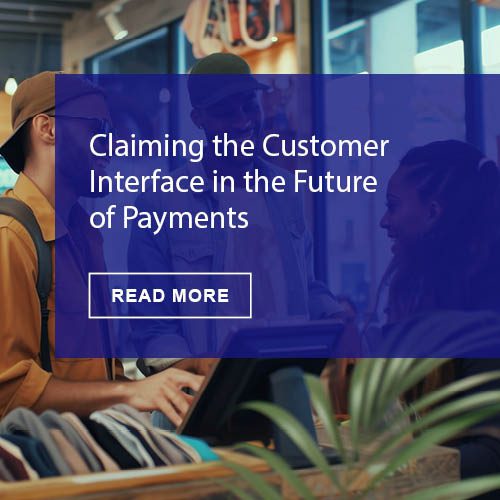Any startup that can have so many large merchants agree to accept a new payment mechanism at launch certainly deserves our attention. Flexa isn’t just offering crypto; it’s implemented a payment network that lets merchants accept crypto that settles in dollars (or crypto if the merchant prefers). The full press release is below, but here are the questions we have regarding this implementation.
- Is Gemini Trust Company, LLC more reliable than all the other Exchanges that have either been operated by criminals or by incompetents. The amount of crypto lost and stolen by Exchanges makes it hard to trust any of them.
- Where does Flexa hold the crypto? Is it held in the wallet, in cold storage someplace, in the Gemini exchange until spent? The press release states the user is to “. . . send bitcoin or other supported digital assets to the secure SPEDN wallet . . .”
- Is the bitcoin private key held in the wallet?
- How is the wallet secured?
- What is communicated to the merchant?
- How is the payment instrument (crypto, token, bar code, hash, whatever) secured in transit and protected against man in the middle attacks?
- What network do the merchants connect their scanner to in order to accept the crypto? How is this network secured?
- What network do merchants receive settlement for the transaction on? Is it net settlement? How frequently does settlement occur?
- How do merchants reconcile Flexa transactions with its books?
- What receipts and notifications do consumers receive?
- What is the business model, who pays and who receives transaction fees?
- Is there a dispute process in place for consumers?
- What participant in this network holds the risk associated with crypto volatility?
- How is the crypto volatility hedged? Bitcoin Cash transactions can take 6 hours.
- The press release states that no POS upgrade is required, but certainly, POS software needs to be updated to recognize and route these transactions differently that say scanning a can of soup or a prepaid gift card.
This is a long list of questions and payment networks are complex to operate. I imagine there are mostly good answers to these questions in that these merchants clearly have the wherewithal to properly vet their suppliers and are incented to do so to protect their brand. We will be following this going forward but here is the full press release:
“NEW YORK, May 13, 2019 /PRNewswire/ — Flexa, the new global network uniting retail and blockchain technologies, today announced a limited launch of its network and mobile app to enable instant cryptocurrency payments in stores and online for several retail merchants. Beginning today, merchants can easily accept bitcoin, ether, Bitcoin Cash, and the Gemini dollar from consumers who have the new SPEDN mobile wallet app. The SPEDN app will be more widely available for download in the App Store starting next week.
To spend cryptocurrency on Flexa, consumers send bitcoin or other supported digital assets to the secure SPEDN wallet and scan the app’s barcode at the register, just like other forms of digital payment. Flexa then converts a consumer’s cryptocurrency to U.S. dollars in real time for payment to the merchant, enabling a simple exchange process and practical use of cryptocurrencies for real-world payments.
“This is the first real instance of decentralized global retail payments, with the power to make commerce more efficient and accessible for billions of citizens globally,” said Tyler Spalding, Co-Founder and CEO of Flexa. “The legacy payment systems are complicated and costly. This solution provides a way for cryptocurrencies to solve these problems and allow merchants to conduct inexpensive and fraud-resistant transactions.”
The SPEDN app was built on the open Flexa network, which acts as an intermediary between merchants and the blockchain, and requires no point-of-sale upgrades for merchants. By integrating existing merchant points-of-sale with blockchain technologies, Flexa’s network simplifies the payment settlement process and reduces instances of fraud, decreasing two of the most significant operating costs for retailers.
Payment processing costs have risen to nearly $90 billion and 2017 losses due to payment card fraud were reported at $22 billion globally.
In addition to simplifying the payment process, Flexa also announced its partnership with Gemini Trust Company, LLC, a regulated and secure cryptocurrency exchange and custodian to exclusively leverage the Gemini dollar. Consumers can spend their U.S. dollars on the blockchain without the price volatility associated with traditional cryptocurrencies.
“This technology shifts cryptocurrency from investment and speculation toward real usability. You can finally buy a cup of coffee with cryptocurrency and a tap of your phone. This moves the broader ecosystem closer to realizing the full promise and power of crypto,” said Tyler Winklevoss, CEO of Gemini.
In 2018, Gemini launched the Gemini dollar, the world’s first regulated, dollar-pegged stablecoin, under the direct supervision of its regulator the New York Department of Financial Services. Flexa customers’ assets will also be custodied by Gemini, providing an additional layer of security and regulation.
About Flexa
Flexa was founded in 2018 to make payments between buyers and sellers more efficient, accessible, and affordable for the very people doing the buying and selling. Based in New York, the Flexa team—with founders Tyler Spalding, Trevor Filter, Zachary Kilgore, and Daniel McCabe—brings decades of experience in consumer payments products to bear on the nascent and thriving ecosystem of cryptocurrencies and digital assets.
About Gemini
Gemini Trust Company, LLC (Gemini) is a cryptocurrency exchange and custodian that allows customers to buy, sell, and store digital assets such as bitcoin, bitcoin cash, ether, zcash, and litecoin. Gemini is a New York trust company that is subject to the capital reserve requirements, cybersecurity requirements, and banking compliance standards set forth by the New York Department of Financial Services and the New York Banking Law. Gemini was founded in 2014, by brothers Cameron and Tyler Winklevoss, to build a bridge to the future of money.
SOURCE Flexa
Related Links
https://flexa.network”
Overview by Tim Sloane, VP, Payments Innovation at Mercator Advisory Group











